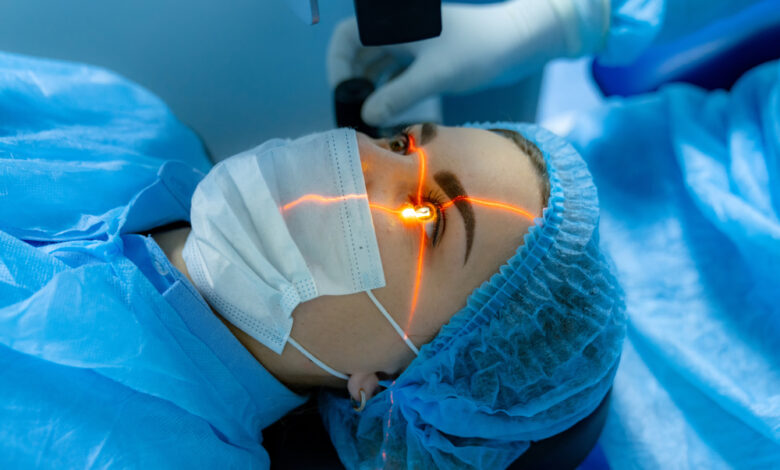A 6-Step Approach To Preparing For Cataract Surgery

Many people suffer from correctable, temporary blindness due to cataracts. When a person has a cataract, their vision becomes hazy, they see double, and their light sensitivity heightens. Cataracts also make vision clarity at night challenging, causing trouble to drive or read after sundown. It can rob the eyes of colour vibrancy, making it difficult to differentiate colours without stark contrasts.
If you encounter any such symptoms, it is best to seek a medical evaluation from an expert to learn if you require treatment from a hospital with facilities for eye surgery in Adelaide.
A professional diagnosis from your ophthalmologist is an innovative move than making assumptions or drawing conclusions. Cataract surgery is an essential milestone toward keeping your vision from deteriorating. In South Australia alone, degenerative disorders are the leading cause of vision loss. The occurrence of monocular blindness is 3.7% and 1.3% for binocular blindness in people aged 50 and over. So, you’re not alone in this journey.
If you have decided to undergo eye surgery in Adelaide, there are several measures to take. The steps below should help you in ensuring you get the maximum benefits possible.
Visit Your Doctor:
Your ophthalmologist will schedule a nonsurgical ultrasound test for your eyes before the surgery. Such a test helps identify the correct lens implant for your eyes.
Prepare in Advance for Recovery:
Cataract surgeries are usually completed in one day, allowing patients to return home the same day. You want to ensure you’re well prepared to recuperate before you leave. Have your family or loved one accompany you to the hospital, given that you cannot drive yourself home. You’ll also have to limit or avoid handling heavy things or engage in challenging activities (as per the doctor’s advice) that can hamper your recovery. Plan ahead of time to cancel meetings or any other events you won’t be able to attend or accomplish.
Discuss Your Medications:
Tell your doctor about your existing medications, as you may have to stop or reduce them during or before surgery. Specific surgery procedures require medicines that prevent thinning of the blood. While cataract surgery seldom causes significant bleeding, your doctor may suggest keeping your medically necessary blood thinners. Either way, it is critical to let the doctor know about any medications you’re taking.
Do Not Skip Eye Drops:
Your doctor may prescribe anti-inflammatory eye drops before the procedure. It is crucial to put the eye drops regularly and on time as they help lower the risk of infection and irritation.
Pre-Surgery Fast:
It is advisable to avoid eating or drinking for at least 8 hours before cataract surgery. You may also have to refrain from drinking alcoholic beverages for the 24 hours preceding your surgery. Consuming food or liquid may lead to postponing the surgery, including breath mints and even chewing gums.
Clean up Before the Surgery:
A clean surgical area is vital for a successful surgery, free of problems and infections. Shower well on the day of surgery, avoid applying cosmetics and wear comfortable or loose clothing.
Have Your Questions Answered:
Your eye doctor is there to assist you, not to perplex you. Do not shy from asking any questions you may have regarding cataract surgery preparation, surgery, or recovery.
Contact Your Insurance Provider:
Do not wait until you’ve had your operation to see what your insurance will pay. Call your insurance company and determine what they will cover and how much you will have to pay out of pocket. Some hospitals contact your insurance company on your behalf, so make sure you cross-check that as well.
Conclusion
Our vision changes as we get older— the eyesight gets less clear and fuzzy, which might impact our day-to-day activities. A regular occurrence among older folks is the requirement for cataract surgery. Cataracts occur when the lens in your eye loses its clarity, causing things to become foggy. Cataract surgery may assist you since it will replace your aging lens with a new, sharp one, allowing you to do your regular activities without difficulty.




